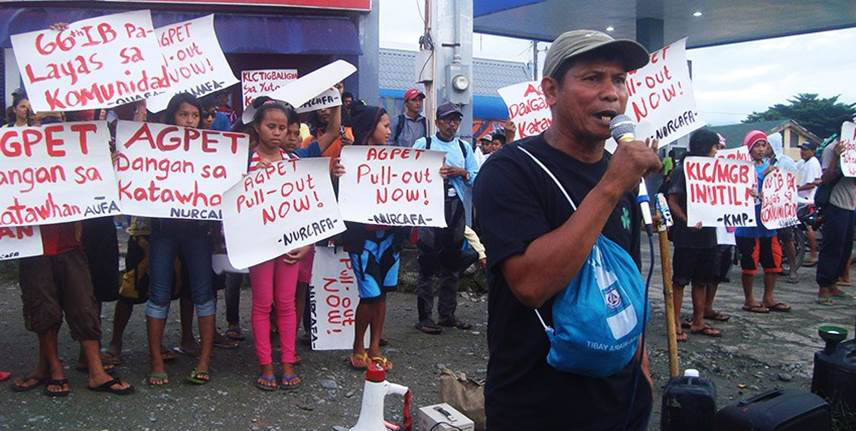Threats and violence against those who defend their basic rights are escalating in many places around the world. In many cases, there are direct or indirect linkages to corporate activity. Sectors that are especially dangerous for human rights defenders include agribusiness, mining, oil, gas and large-scale dam building. Local- and indigenous populations who defend their rights to land, the environment and natural resources are especially vulnerable. People active in trade unions and those who are standing up for rights at workplaces is another particularly vulnerable group. Brazil, Mexico, Colombia, Honduras, Guatemala, Philippines and South Africa are some of the countries that have seen most attacks on those who defend their rights in the face of corporate activity. In some cases, companies have been involved when states have introduced tougher legislation to limit civil society. In many areas, where the mining sector is important to a country’s economy, states have defended companies against accusations of human rights abuses.
Extractive industries are responsible for considerable investment aimed at recovering precious raw materials. Many extraction activities therefore involve private security forces, and sometimes require companies to enter into special agreements with police and the military to protect sites. Tension caused by the increased presence of weapons and security personnel, extreme violence against local populations, and unlawful arrests of people resisting the presence of companies are common in many parts of the world, primarily in Latin America, Africa and Asia.
Some examples
- In Cambodia, illegal mining of sand has become a major industry, involving high degrees of corruption. According to local environmental organisations, sand mining results in the collapse of protective sandbars and that important ecosystems, for example for shrimp and crab, are destroyed. In 2017, two environmental activists were arrested for filming boats suspected of transporting illegal sand. The pair were given a one-year prison term, although were released earlier.
- Incidents of murder, rape, torture, and violence against the local population have been documented for many years in and around the Grasberg gold and copper mine on the island of Papua, Indonesia. Private security forces hired by mining company Freeport McMoRan, local police and military forces are responsible for the abuse. The company paid millions of dollars to local police and the military for many years, in suspicious circumstances. In 2018, the Indonesian state took majority ownership of the mine. It is unclear how the state will manage the long-running conflict between the local population, the mine and the security companies, nor the extensive damage the mine has caused.
- In many parts of the world it has become increasingly dangerous to defend human rights and the environment from extractive activities and large-scale agriculture. In 2019, record numbers of environment and human rights defenders were killed all over the world, (304 persons in 31 countries). The five most dangerous countries were Colombia, the Philippines, Honduras, Mexico and Brazil. Read more in Forum Syd’s report Defending their Rights, Risking their Lives.
- The Philippines is one of the deadliest countries in the world for human rights defenders with 43 murders reported in 2019. Violence is especially directed towards those who defend land rights, and in many cases, linkages exist between mining or the exploitation of natural resources. Farmers have been murdered after protesting against large-scale plantations and a lawyer who represented small holders’ rights was shot dead. Perpetrators often go unpunished and the murders are seldom investigated.
Jimmy Saypan, a leader of the indigenous people Lumad in the Philippines, who was murdered after leading protests against the extraction of minerals in their traditional areas. Photo: Center for Environmental Concerns.

